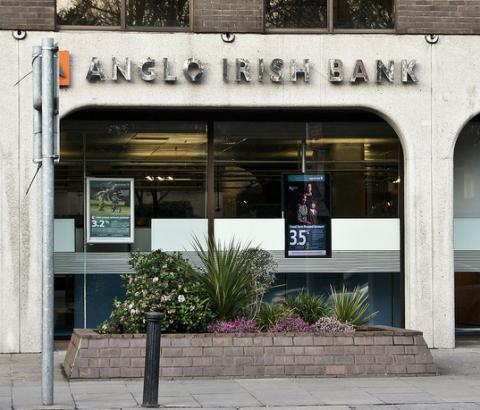How serious are we about holding people to account?

We should not resign ourselves to the idea that those responsible for our national economic meltdown will not be held to account for their actions, writes Paul McElhinney.
There was a time when Irish people would have simply shrugged in resignation at the lack of progress in holding members of society’s elite to account for their transgressions. “Ah sure, that’s the system: the little people always pick up the tab - the rich and well-heeled always get away with blue murder,” would have been the resigned refrain. If the Celtic Tiger period left anything positive in its wake, it is an attitude of greater self-confidence among people, now able to see the feet of clay of those in authority and less afraid of speaking truth to power. While this is undeniably true, what difference has it made?
We Irish are the best in the world at verbalising our problems and in coming up with plausible solutions on paper. Yet there is a feeling that after all the well-intentioned verbalising, little actually happens in implementing solutions. All sorts of reasons are said to account for this, not least perhaps, a post-colonial tendency to project blame onto larger entities than ourselves. Nevertheless, the reasons for inaction are not as important as the fact that we seem to accept that little will happen in holding people to account.
The long-running Anglo-Irish bank debacle and the banking scandals in general drag on with little sign of a definitive end to their problems, while those alleged to have been responsible for our national meltdown continue on in the hope that the longer the whole process drags on, the more memories will fade, societal anger dissipate and the aim of ultimate accountability be avoided. Is this what we really want: a slow retreat into collective public amnesia when the passage of time simply results in the fading of the issues from the public radar? It seems that for some, many of whom are in powerful positions, this is exactly the desired result – a form of moral ‘debt forgiveness’ where everyone is guilty but nobody is guilty. It is a picture of a society walking into moral hazard; a sign that we have not yet grown up as a nation. In this Alice in Wonderland world, all we have to do is wait long enough and these uncomfortable realities will simply disappear. The current grindingly slow process of investigation and prosecution seems to lead to that conclusion.
Although there was something demeaning about the ‘perp’ walk which Dominique Strauss-Kahn was subjected to outside a New York courthouse, there is, however, something admirable about the US justice system’s quick, direct and no nonsense approach to financial and other malfeasance. Who could have failed to notice at the time the speedy dispatch with which Bernie Madoff was made to account for his transgressions, while Ireland’s own home-grown variety of high rollers were being treated with relative kid gloves. Are we too nice a nation of people or do we lack the legal and judicial firepower to bring such matters to a final conclusion?
No one can doubt the good intentions (albeit partly politically motivated) of the current Government in attempting to clear out the Augean stables left by previous government. Yet our whole political and institutional system seems to be so monumentally hamstrung in arriving at timely and effective resolutions to such problems – another element of political reform the current government, at least in spirit, is committed to resolving. But the nature of political power is such that the pedal tends to ease on the accelerator once people are ensconced in power.
Against this backdrop and the fears of a ‘double-dip’ US and world recession, concern remains that structural and institutional reforms might slip quietly into the shadows amidst attempts to deal with any impending economic firestorm. Such a dilatory approach would be short-sighted, but it is to be hoped that the new brand of eclectic, assertive Dáil Opposition members will ensure that the Government’s shoulder is kept firmly to the wheel in this important area.
We hear much about transparency and accountability nowadays. For these concepts to be more than high-sounding aspirations, the Government and the agencies of State must seize this opportunity to settle the account of responsibility for the actions that have brought about our current and long-standing malaise. Not only must the rights to due process of those accused of crimes be strictly observed, but that other element of due process - the need for speedy and timely investigations and trials - must also be observed so that justice is neither delayed nor denied. The Irish people deserve no less.
Image top: infomatique.
